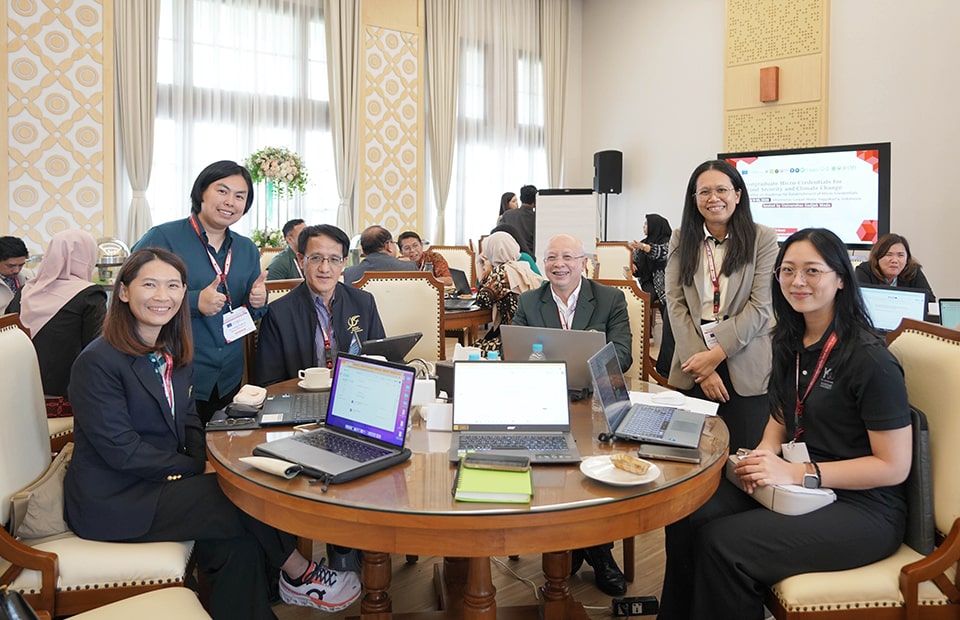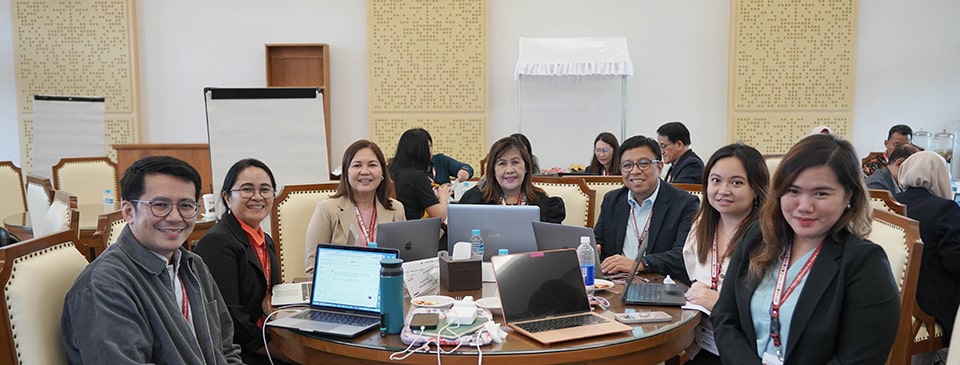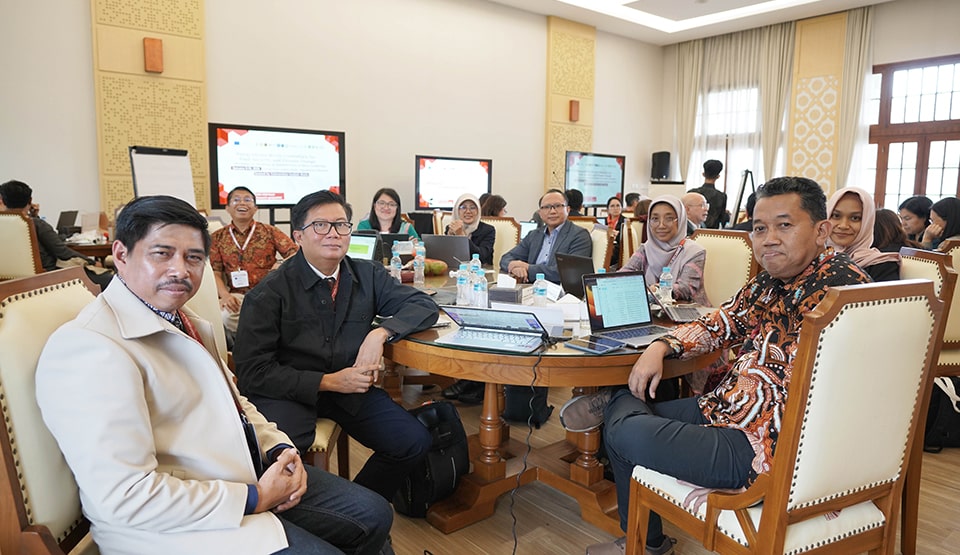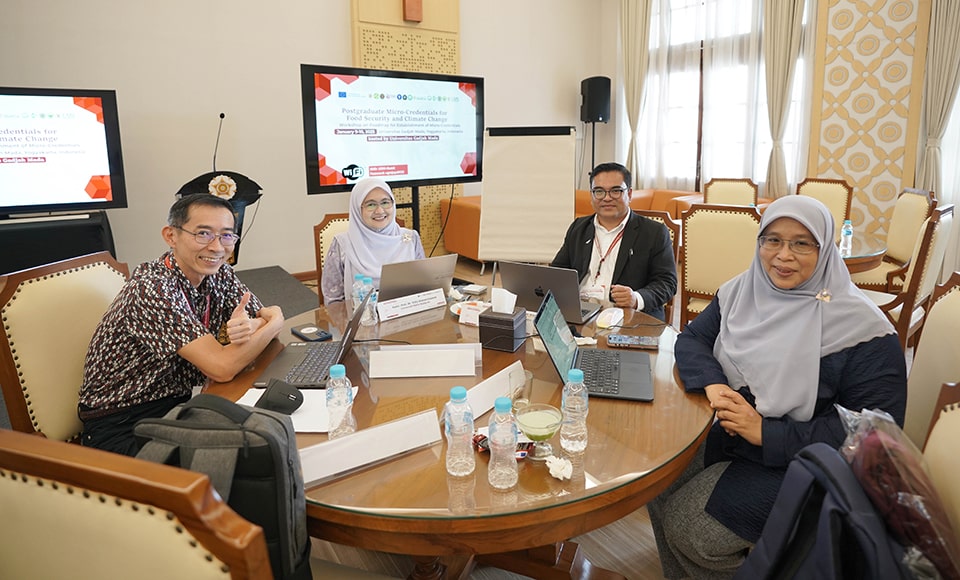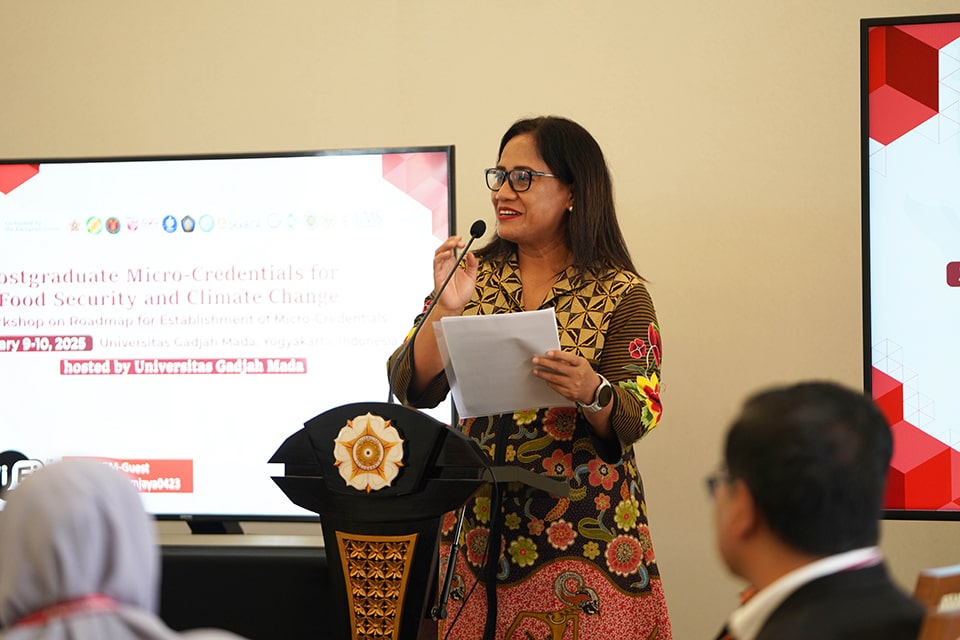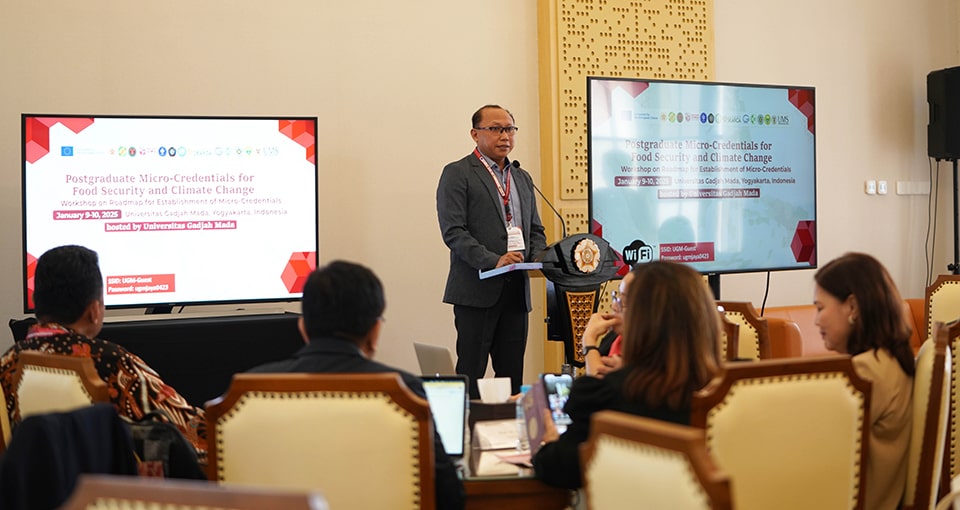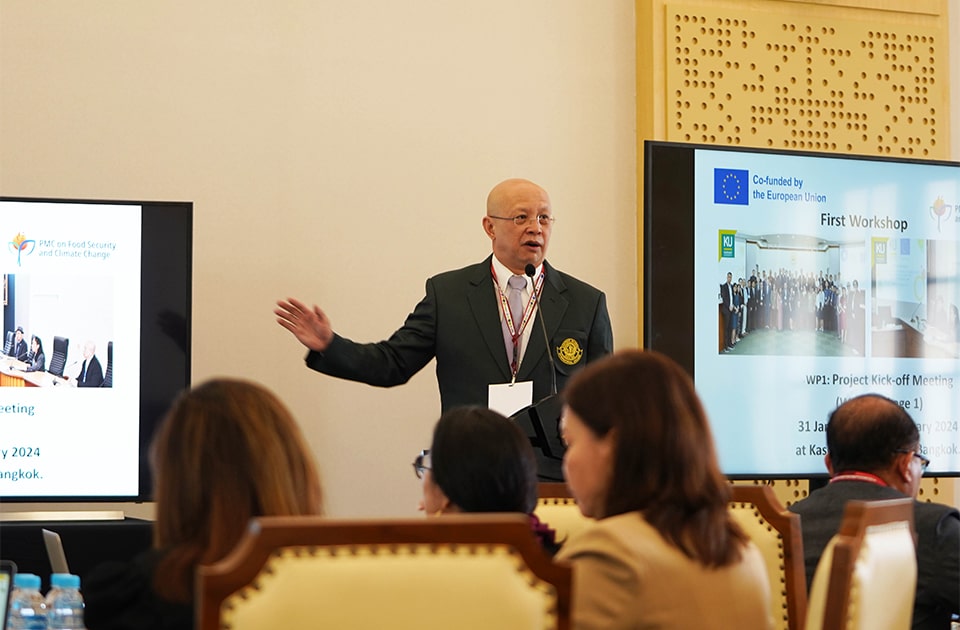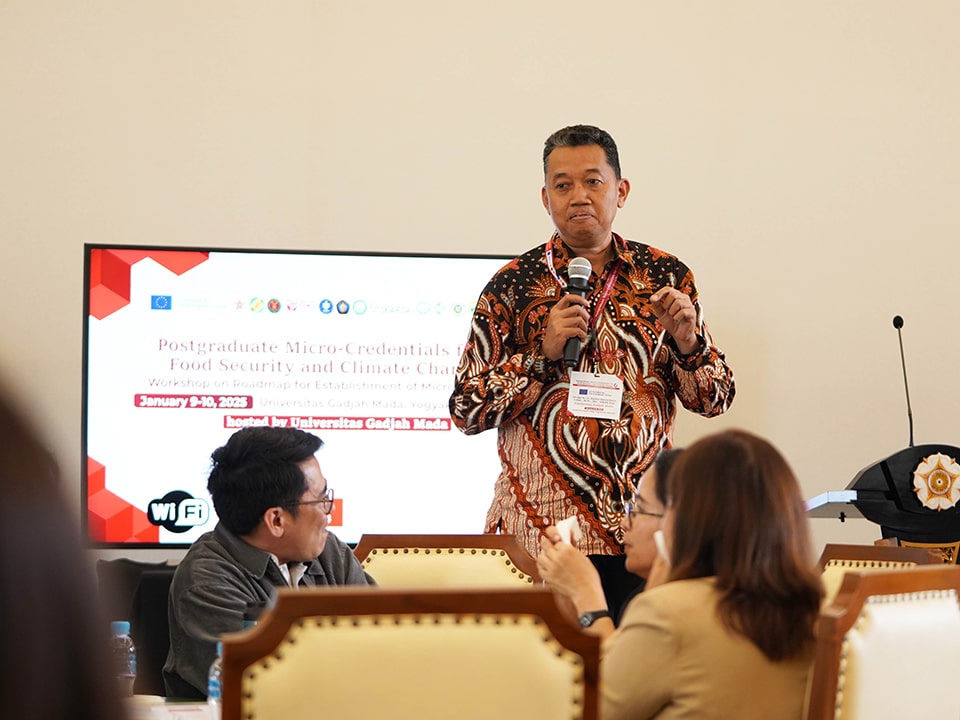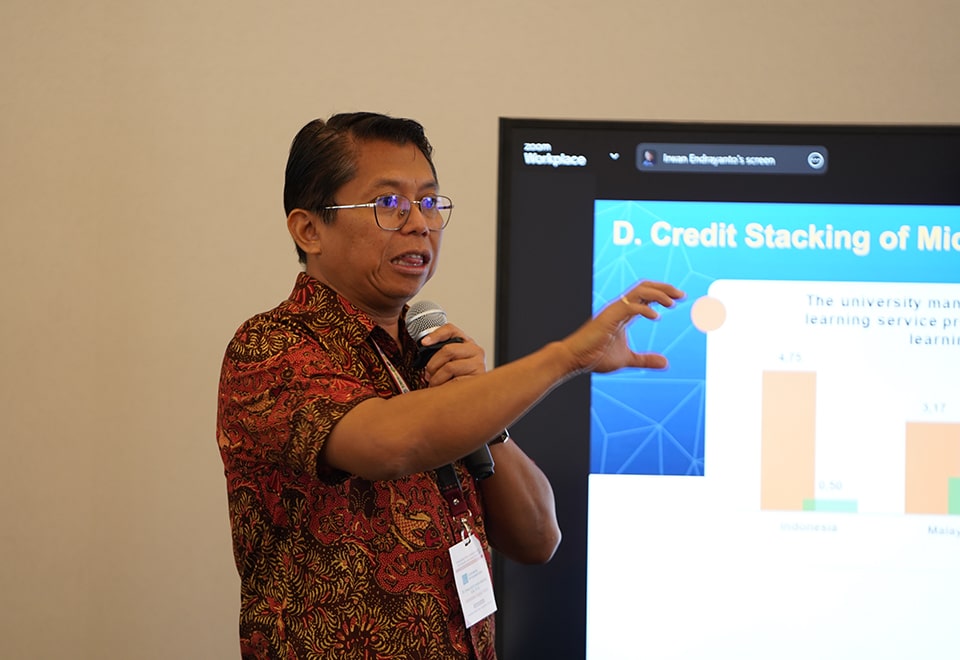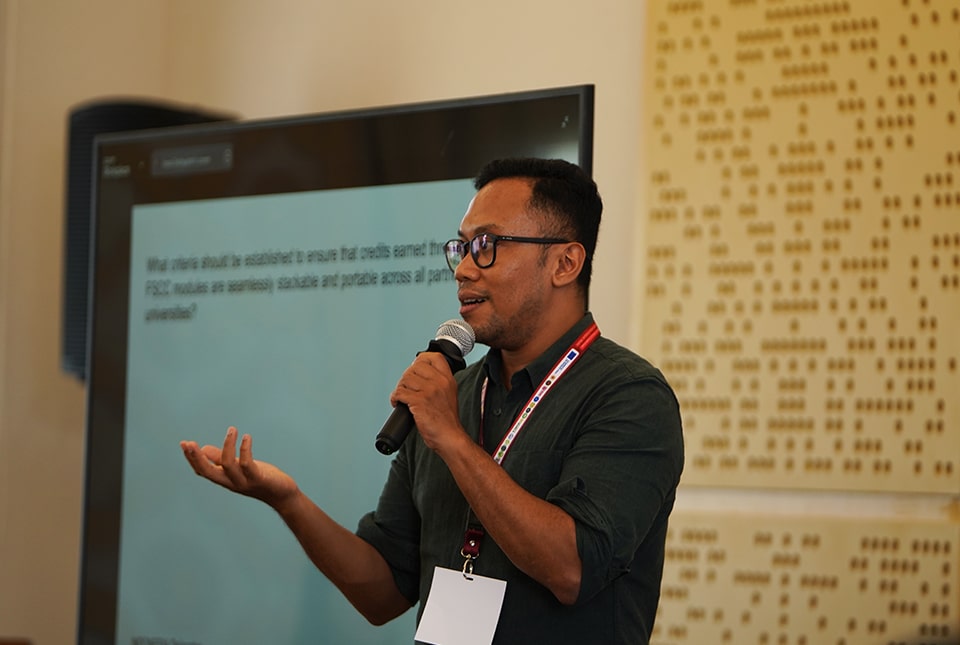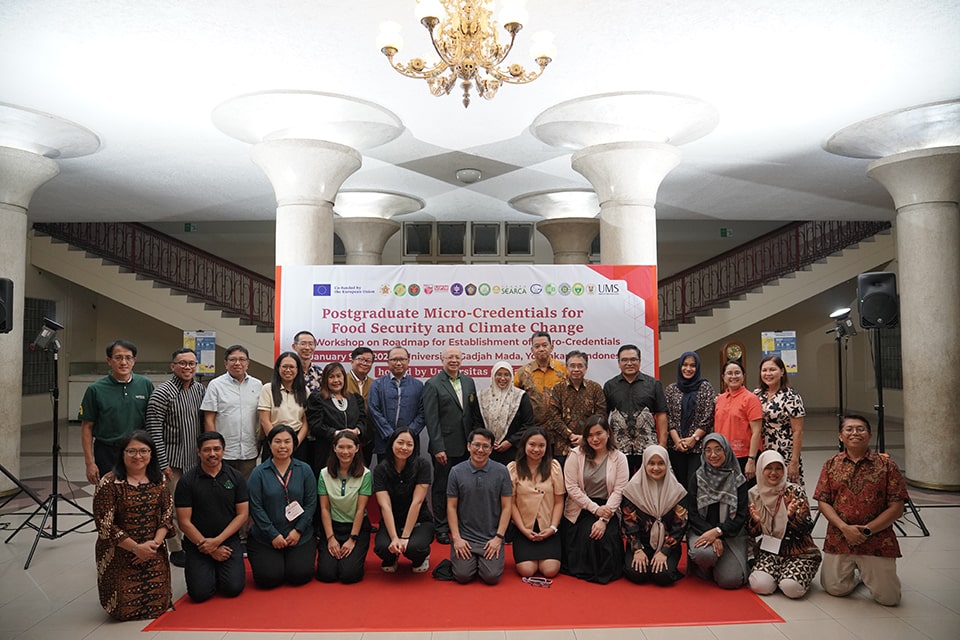 Delegates of the Workshop on Developing a Roadmap for the Establishment of Micro-Credentials at UGM, Yogyakarta, Indonesia
Delegates of the Workshop on Developing a Roadmap for the Establishment of Micro-Credentials at UGM, Yogyakarta, Indonesia
The ERASMUS+-funded program on Postgraduate Micro-credentials in Food Security and Climate Change (PMC FSCC) opened 2025 with a workshop titled Developing a Roadmap for the Establishment of Micro-Credentials. This workshop, held on 9–10 January 2025 at Universitas Gadjah Mada (UGM) in Yogyakarta, Indonesia, marked the project's final event under Work Package 3 (WP3). Organized by UGM in collaboration with Maejo University (MJU), the workshop played a crucial role in finalizing the roadmap for micro-credentials and reaching an agreement among partner universities on offering the program.
The workshop gathered representatives from academic institutions, including Institut Pertanian Bogor (IPB), UGM, and Universitas Brawijaya (UB) from Indonesia; Universiti Malaysia Sabah (UMS) and Universiti Putra Malaysia (UPM); MJU and Kasetsart University (KU) from Thailand; and the University of the Philippines Los Baños (UPLB), Central Luzon State University (CLSU), and Visayas State University (VSU) from the Philippines. KU serves as the overall project leader, with SEARCA providing coordination support as the Secretariat of the Southeast Asian University Consortium for Graduate Education in Agriculture and Natural Resources (UC).
In her opening remarks, Prof. Dr. Wening Udasmoro, Vice-Rector for Education and Learning at UGM, emphasized the collaborative efforts to address food security challenges exacerbated by climate change. She highlighted the program's innovative approach to equipping future generations with essential skills through micro-credentialing systems. Prof. Dr. Udasmoro also invited the participants to experience the warmth and culture of Yogyakarta, which is celebrated as Indonesia's academic and cultural hub. Dr. Budi Guntoro, Dean of the Faculty of Animal Science and UGM's UC Executive Officer, formally welcomed the attendees, while Assoc. Prof. Dr. Buncha Chinnasri, the PMC FSCC Project Coordinator and SEARCA Adjunct Fellow, provided an update on the project's progress and outlined the remaining deliverables for 2025.
(L-R) Prof. Dr. Wening Udasmoro, Vice-Rector for Education and Learning at UGM, Dr. Budi Guntoro, Dean of the Faculty of Animal Science, UGM's UC Executive Officer, and Assoc. Prof. Dr. Buncha Chinnasri, the PMC FSCC Project Coordinator and SEARCA Adjunct Fellow, during the opening program of the workshop.
The workshop discussions were facilitated by Dr. Ir. Hatma Suryatmojo, Director of the Directorate for Academic Research and Innovation and UGM's UC Coordinator; Dr. Irwan Endrayanto Aluicius, Head of the Sub-Directorate for Academic Research; and Dr. Harry Freitag Luglio Muhammad, Manager of UGM Online. Participants collaborated in country-based groups to explore similarities and differences in credit recognition systems, establish timeframes for credit acknowledgment, and address module implementation, admission, and payment processes. On the second day, the discussions focused on finalizing the roadmap and defining shared processes for implementing the modules. Key aspects of micro-credentials were also tackled, such as recognition, certification, credential stacking, credit transfer, and the integration of digital badges for the 2025 PMC FSCC offering.
Dr. Ir. Hatma Suryatmojo, Director of the Directorate for Academic Research and Innovation, and UGM’s UC Coordinator; Dr. Irwan Endrayanto Aluicius, Head of the Sub-Directorate for Academic Research; and Dr. Harry Freitag Luglio Muhammad, Manager of UGM Online facilitating the two-day workshop.
The outcomes of these discussions will be consolidated into a comprehensive handbook that outlines the establishment and implementation of micro-credential modules. This handbook will provide a unified definition of micro-credentials, quality assurance mechanisms, and detailed processes for recognition, credit transfer to advanced degrees, and portability across partner universities.
The event concluded with a cultural excursion to Prambanan Temple, where participants enjoyed the Legend of Roro Jonggrang, offering a unique and enriching glimpse into Yogyakarta's rich heritage.
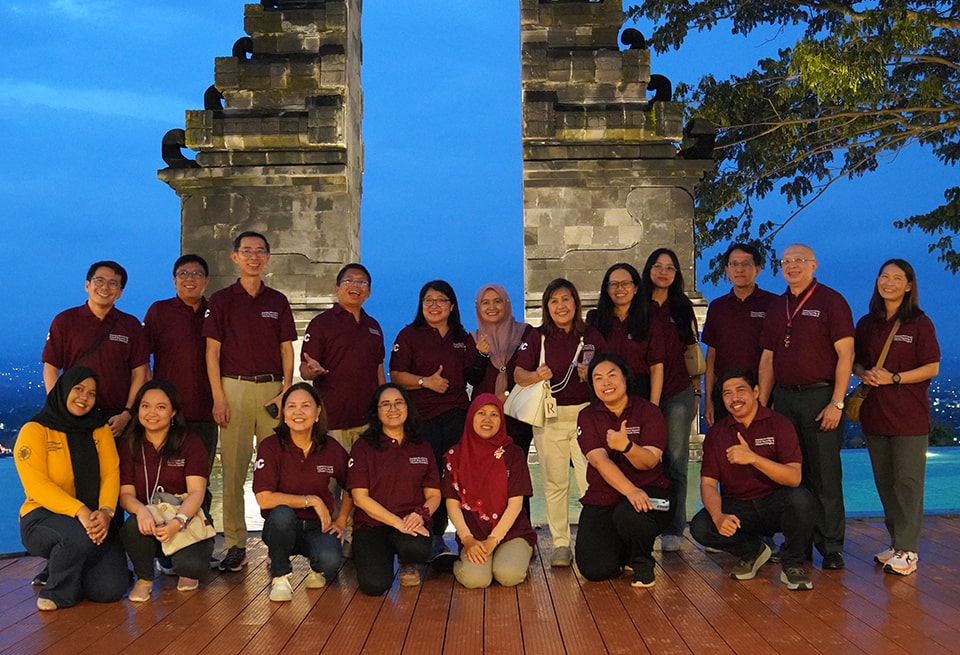 Workshop delegates during the cultural excursion.
Workshop delegates during the cultural excursion.
Running from 2023 to 2026, the PMC FSCC project aims to deliver micro-credential-based short courses on food security and climate change using technology-driven online modules. To date, UGM has successfully conducted three workshops and completed two deliverables, with their final deliverables, based on this workshop, scheduled for submission in February 2025.
